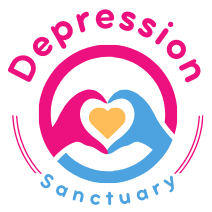Before diving into an exercise program, you will probably want to know what is the best exercise for depression. After all, you don’t want to waste your time with something that isn’t likely to help you feel better.
Surprisingly, it’s not as complicated as you may think to know where to begin. First, let’s take a look at what factors probably influence how well any given type of exercise will help.
How exercise helps depression
While we don’t yet know for certain how exercise helps depression, there are several theories out there:
Thermomogenic hypothesis: According to this theory, exercise raises your body’s core temperature, which in turn warms up specific parts of your brain, leading to feelings of relaxation and reduced muscle tension.
Endorphin hypothesis: Exercise causes the release of our body’s natural painkillers called endorphins, which causes us to feel good.
Monoamine hypothesis: Depression is associated with a reduction in important brain chemicals called neurotransmitters which are involved in mood regulation. While it hasn’t been proven, it’s possible that exercise may increase the amount of these chemicals in our brains.
Distraction hypothesis: It’s possible that exercise helps depression because the intensity of effort involved takes our minds away from what’s troubling us.
Self-efficacy hypothesis: Exercise is a great booster of our self-esteem and feelings of self-worth. By achieving our fitness goals, we can begin to feel better about ourselves.
The best exercise for depression
So, what type of exercise ticks off almost all of these boxes and appears to have scientific support for its efficacy in relieving depression? While any type of exercise can help depression, the best answer may be aerobic exercise.
In a nutshell, aerobic exercise — also known as “cardio” — is any exercise that gets you breathing hard and your heart pounding. It typically involves continuous, rhythmic movements that can be sustained for at least 20 minutes. Running, biking, swimming, walking, dancing and skiing are all examples of aerobic exercise, but there are many other forms of exercise that can be considered to be aerobic. Aerobic exercise helps improve cardiovascular health, increases lung capacity, and can help reduce the risk of chronic diseases such as diabetes and heart disease.
Aerobic exercise also appears to be helpful for depression. For example, a 2018 systematic review published in Depression & Anxiety found that regular aerobic exercise can be more effective than antidepressants in treating major depression in adults. The study reviewed trials that included aerobic activities like walking, jogging, running, and swimming. The participants in these trials typically had supervised 45-minute sessions, three times per week. The study found that engaging in these activities was associated with moderate to large reductions in depression scores. The results were consistent regardless of the study quality or the characteristics of the participants.
How to get started with aerobic exercise
Here are some general tips for getting started with a regular aerobic exercise routine:
1. Start slow: If you’re new to exercise or haven’t been active in a while, begin with shorter, less intense sessions and gradually increase your duration and intensity.
2. Choose activities you enjoy: Finding an aerobic activity that you like will make it easier to stick to a regular routine.
3. Set achievable goals: Start with small, achievable goals and gradually build upon them over time.
4. Make it social: Invite a friend or join a group exercise class to help maintain motivation and accountability.
5. Consistency is key: Regular exercise allows you to achieve — and maintain — your wellness goals.
How much to exercise for depression relief
The amount of aerobic exercise needed to relieve depression varies depending on an individual’s condition and fitness levels.
According to the National Institute for Health and Care Excellence (NICE), it is recommended that adults with depression engage in at least 45 minutes of moderate-intensity aerobic exercise three times per week as part of their treatment plan.
However, it is always advisable to consult with a healthcare professional to determine what exercise routine is best for you.
Photo: RF._.studio
Nancy Schimelpfening is the founder of Depression Sanctuary. Unless otherwise stated, all of the content on Depression Sanctuary is written by and maintained by Nancy. Nancy has a master’s degree in community health education from Old Dominion University in Norfolk, VA. She was the About.com (now Verywell.com) expert on depression from 1998-2016. She has also written for other online publications, including Healthline, Healthgrades Professional, Health Digest, and MindBodyGreen.


Nancy Schimelpfening, MS Thursday, March 14, 2024
I want the depression to end, to be over. I do take a medication that I think helps but also has side effects. I want it to be over / to end.
Is anyone working to End Depression? Who? Can I get in touch with them?
Who should I contact. I am not talking about making monetary contributions, I want to be in on the action. I want to be a part of ending depression. Thanks for your help.
Thanks